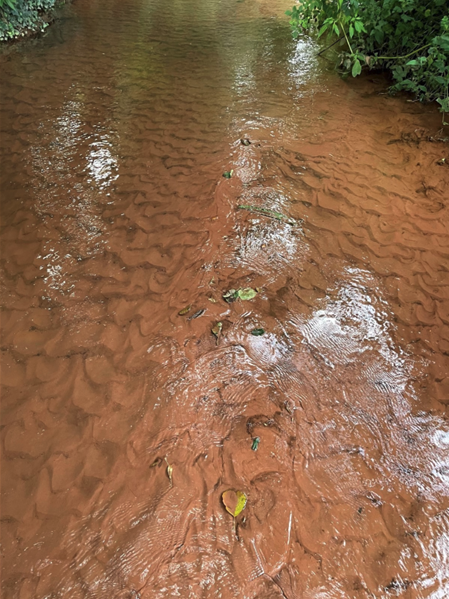A FARMER who twice caused closures of the A358 between Williton and Taunton three years ago because of potato and silt mudslides will have to pay out more than £40,000 as a consequence.
Experienced potato farmer David Mitchell was last week prosecuted in Taunton Magistrates Court by the Environment Agency.
Mitchell, of Hillcommon, near Wellington, rented a field in Combe Florey when hundreds of tonnes of mud and potatoes were washed onto the road by heavy rain.
Silt, soil, and potatoes also caused serious pollution of Back Stream, a tributary of the River Tone.
Mitchell pleaded guilty to one offence of causing silt laden water to enter the stream on two occasions in August and September, 2022.
He was ordered to pay £9,078 in fines and costs based on his means as disclosed to the court, which heard other clean up expenses had already cost him more than £35,000.
The agency said pollution of Back Stream in September, 2022, saw a considerable length of the watercourse bed covered, bank to bank, in a thick layer of sediment.

Investigators traced the pollution to a large field close to the railway bridge in Combe Florey where soil run off had gone onto the A358 and into the stream.
The field was rented by Mitchell to grow potatoes which had not yet been harvested when thunderstorms and wet weather resulted in 50 to 100 tonnes of soil being washed away.
Large numbers of potatoes could be seen in the watercourse and along the edge of the roadside, along with significant quantities of silt and mud, causing the A358 to twice be shut while Somerset Council highways contractors cleared drains and removed tonnes of soil.
The soil under the railway bridge was so deep it blocked vehicles and Mitchell agreed to pay compensation of £1,128.10 to one motorist for their losses.
Agency investigators also looked at the August incident which similarly closed the A358, after which Mitchell was provided with silt fencing and guidance and advice paid for by the Somerset Rivers Authority, but only a small section was used and was not installed according to the guidance.
Hay bales and a soil bund had also been installed at the bottom of the field in an attempt to prevent further soil from leaving the field.
It was established the potatoes had mainly been planted up and down the sloping field, which significantly increased the risk of soil erosion and run off.
The agency’s David Womack said: “Mitchell had control and custody of the land he rented up until the point of harvest and was therefore responsible for the land management practices.
“He chose to grow a high-risk crop on a sloping field with light soils.
“As an experienced potato farmer he should have identified the risks of using this field and taken reasonable steps to prevent large scale soil loss.
“No formal risk assessment and no adequate precautions to prevent soil loss had been taken.
“This made it highly likely soil erosion and environmental damage would occur in even moderate rainfall conditions.”





Comments
This article has no comments yet. Be the first to leave a comment.